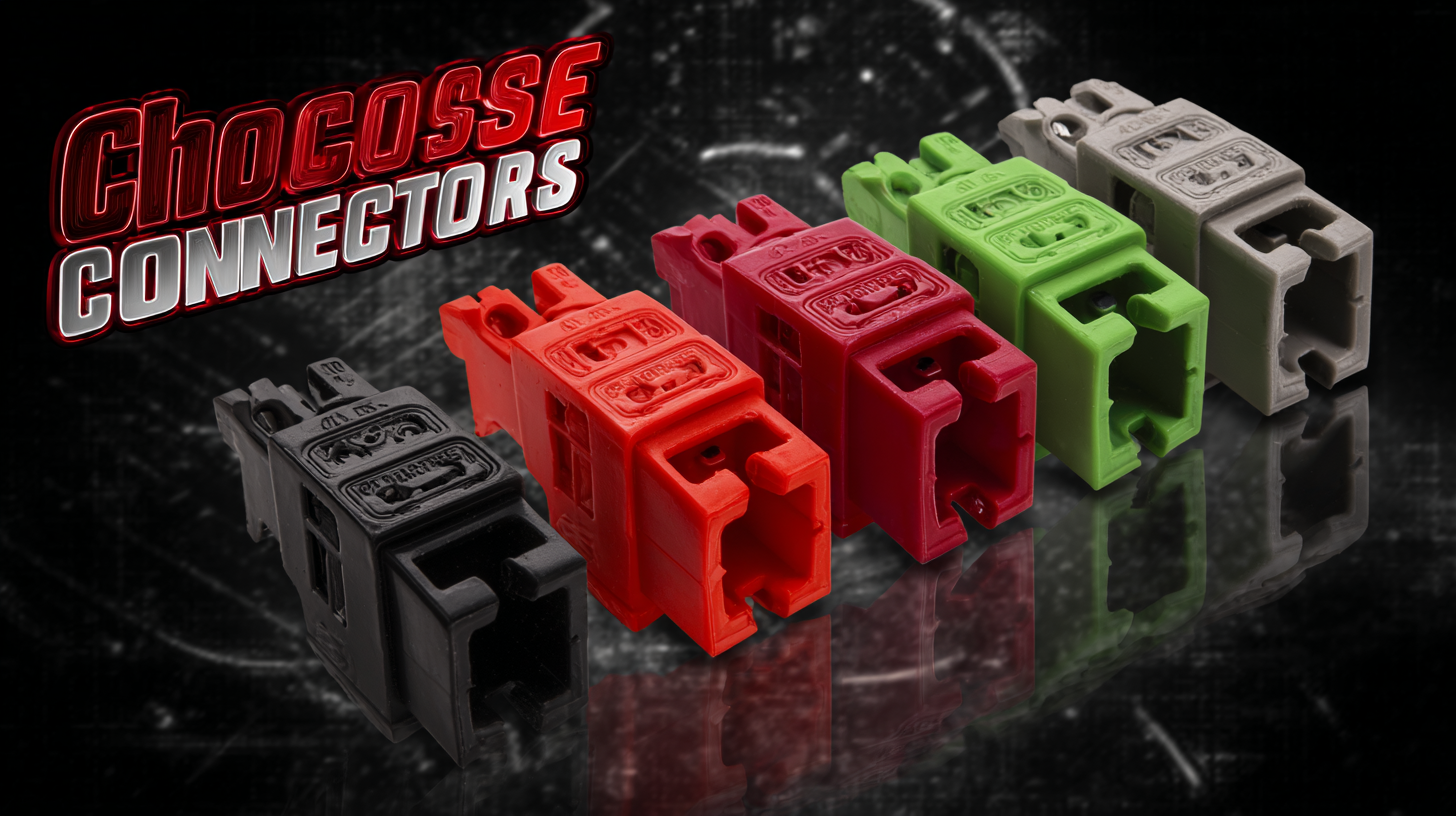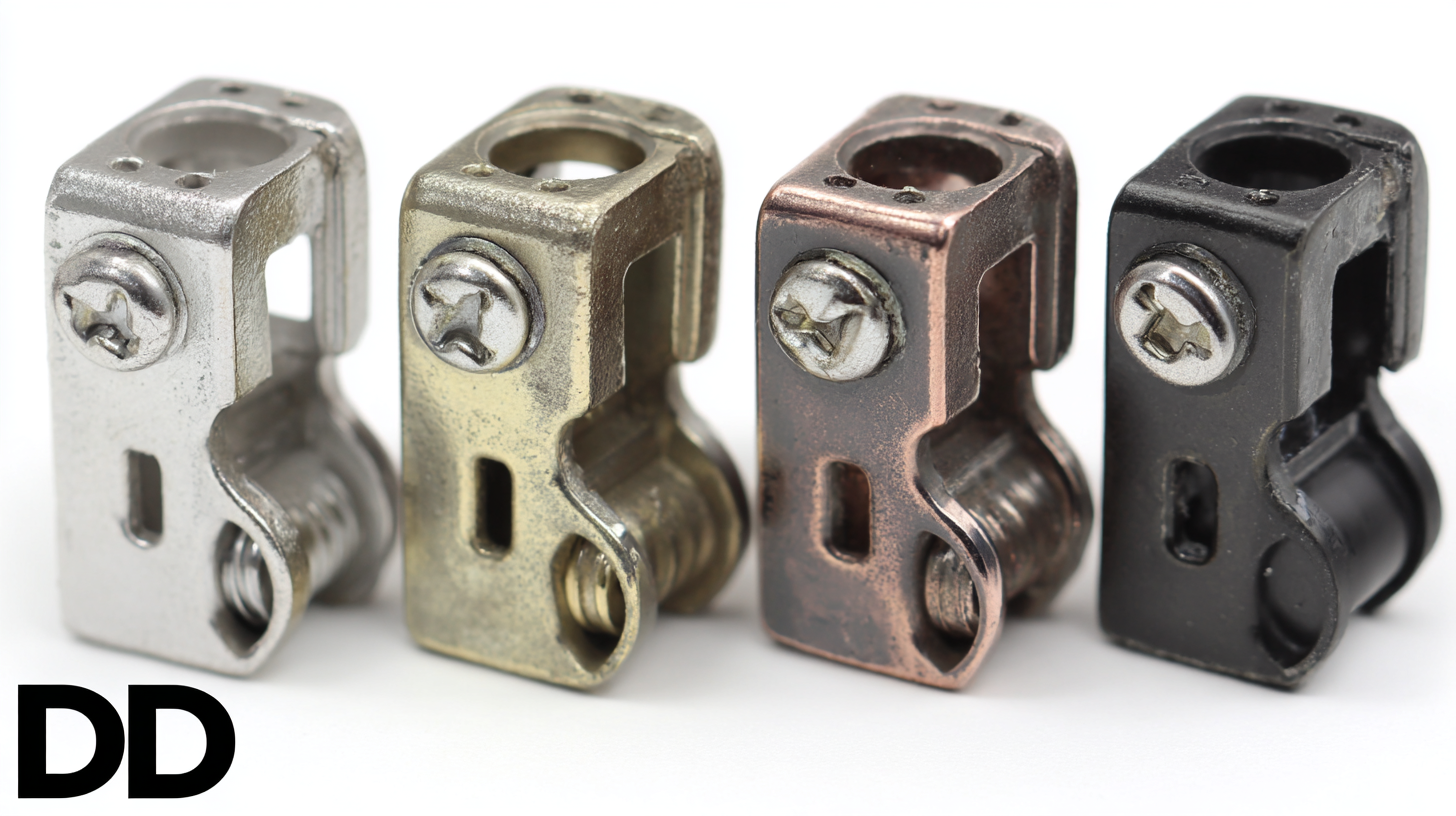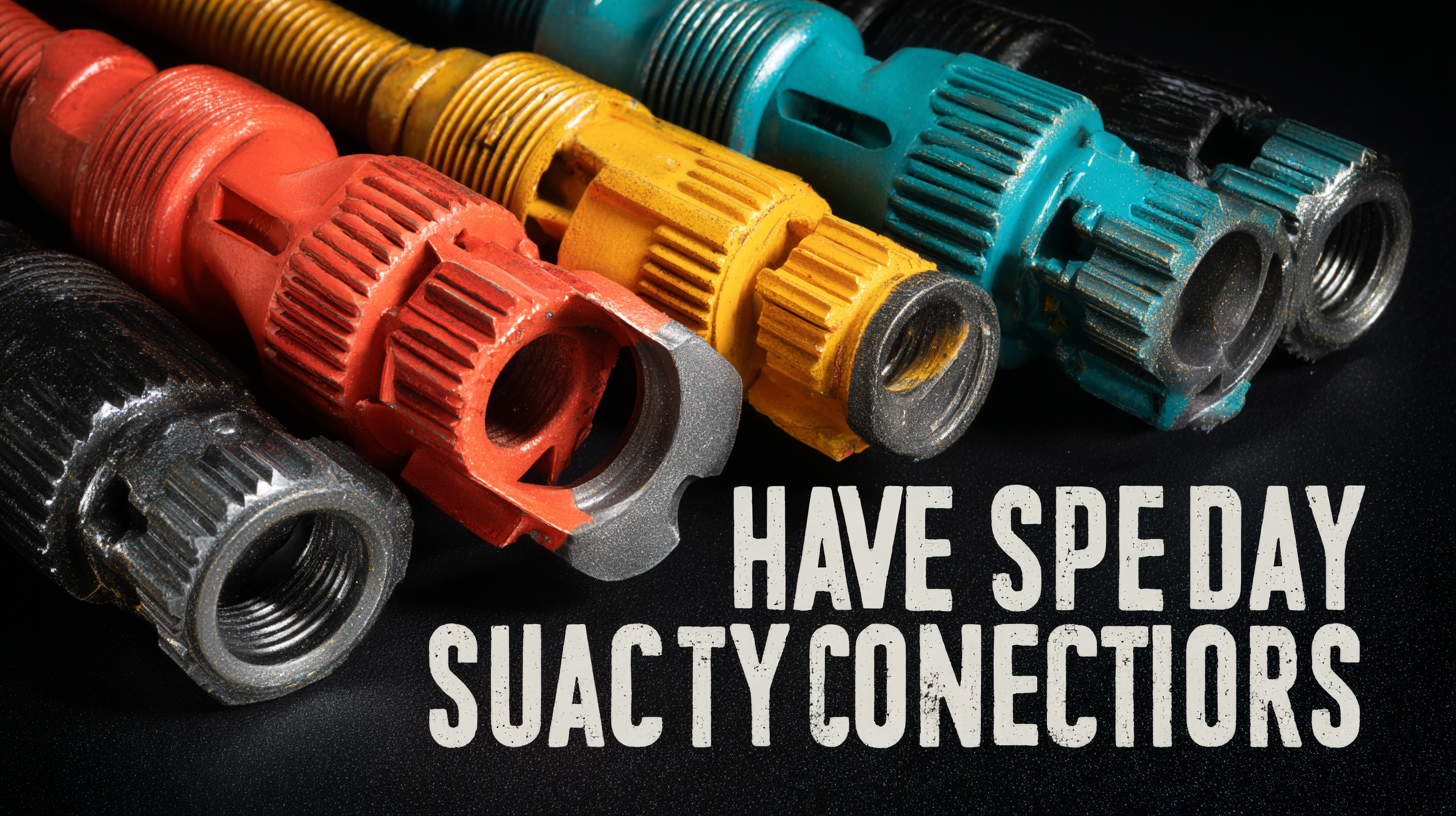
In the ever-evolving landscape of electrical connectivity, the choice of the right components is crucial for both performance and safety. Heavy Duty Spade Connectors, known for their robustness and reliability, are vital in applications ranging from automotive wiring to industrial machinery. According to a report by MarketsandMarkets, the global market for electrical connectors is expected to reach $92.39 billion by 2026, driven by increasing demand for durable and efficient electrical solutions. The rising emphasis on safety standards and technological advancements further underscores the importance of selecting the appropriate connectors for specific needs. This blog will guide you through key considerations and top types of Heavy Duty Spade Connectors to ensure optimal performance in your projects.

When selecting heavy-duty spade connectors, it's essential to understand the various types available to meet your specific needs. The most common types include insulated and non-insulated connectors. Insulated spade connectors provide extra protection against short circuits and are ideal for environments where moisture or debris may be present. On the other hand, non-insulated connectors are often used in situations where space is limited or where the connections will be made in a controlled environment.
When choosing spade connectors, consider the material they are made from. Copper connectors offer excellent conductivity and durability but require proper insulation to avoid corrosion. Tin-plated connectors, however, provide a good balance by resisting corrosion while still maintaining decent conductivity. Additionally, check the gauge rating to ensure that the connectors can handle the required current load without overheating.
Tips for selection: Always verify the specific requirements of your project, including the wire gauge and amperage. It’s also beneficial to keep a variety of sizes on hand for flexibility in different applications. Lastly, ensure that the connectors are compatible with the tools you plan to use for installation, as this will make the process smoother and more efficient.
| Connector Type | Material | Temperature Rating (°C) | Wire Gauge Compatibility | Insulation Type |
|---|---|---|---|---|
| Standard Spade Connector | Copper | 75 | 18-14 AWG | Non-Insulated |
| Insulated Spade Connector | Copper | 85 | 22-16 AWG | PVC Insulation |
| Weatherproof Spade Connector | Tin-Plated Copper | 100 | 14-10 AWG | Heat Shrink Insulation |
| Heavy Duty Spade Connector | Brass | 90 | 10-8 AWG | PVC Insulation |
| Locking Spade Connector | Copper | 75 | 16-12 AWG | Non-Insulated |
When selecting the best heavy-duty spade connectors, several key features must be taken into consideration to ensure optimal performance and reliability.
Firstly, the material quality is paramount; connectors made from high-conductivity copper are preferable as they provide lower resistance and minimize voltage drop.
A report from the Electrical Safety Foundation International (ESFI) indicates that copper connectors can offer up to 30% better conductivity than aluminum alternatives, making them the ideal choice for demanding applications.
Another critical feature is the current rating of the connectors, which should align with your specific electrical requirements.
According to industry standards, heavy-duty spade connectors generally have current ratings ranging from 10A to over 100A.
Choosing a connector with a higher ampacity than your application demands can prevent overheating and potential failures.
Additionally, sealant features for waterproof and corrosion resistance, as pointed out by the National Electrical Manufacturers Association, can further enhance longevity and performance in harsh environments.
Therefore, evaluating these features will help you select the most suitable spade connector alternatives for your project.
When selecting the best heavy-duty spade connectors for your needs, understanding the differences between insulated and non-insulated options is crucial. Insulated spade connectors, typically rated for high voltage applications, offer an added layer of safety by preventing accidental short circuits and improving overall durability. According to a report by the Electrical Safety Foundation International, approximately 30% of electrical failures are attributed to poor connections, emphasizing the importance of insulation in maintaining reliable performance in various environments.
On the other hand, non-insulated spade connectors can be advantageous in situations where space is limited or when making rapid, temporary connections. These connectors, while lacking the protective layer, allow for quicker assembly and are often preferred in automotive or hobbyist applications. The International Electrotechnical Commission highlights that non-insulated connectors can provide better conductivity due to direct metal-to-metal contact, making them suitable for high-current usage. Ultimately, the choice between insulated and non-insulated connectors depends on the specific requirements of your project, including environmental conditions, electrical load, and the need for safety features.
When selecting the right heavy-duty spade connectors for your projects, the choice between standard and dual wire spade connectors can significantly impact both versatility and functionality. Standard spade connectors are often favored for their simplicity and ease of use. They provide a secure connection for a single wire and are ideal for applications where space is limited or where only a single conductor is needed. This makes them a go-to option for general wiring tasks in automotive, marine, and electrical installations.
On the other hand, dual wire spade connectors offer additional versatility by allowing two wires to connect to a single point. This feature can be particularly beneficial in environments where multiple circuits need to share a common connection without the hassle of additional connectors. The dual design not only saves space but also streamlines the wiring process, making it easier to manage complex electrical systems. When deciding between the two, consider the specific requirements of your project, including the number of wires you need to connect and the overall layout of your wiring scheme.

Heavy duty spade connectors are versatile components widely used in various applications, providing reliable electrical connections in demanding environments. One of the most common use cases for these connectors is in automotive wiring. In vehicles, heavy duty spade connectors are used to connect power to various subsystems, such as lighting, ignition systems, and entertainment units, ensuring a secure and durable connection that can withstand vibrations and temperature fluctuations.
Another prevalent application is in industrial machinery and equipment. Heavy duty spade connectors play a crucial role in connecting power supply lines to motors and control systems, where they support high current loads and resist corrosion. Their robust design makes them ideal for harsh conditions found in manufacturing plants and outdoor settings. Additionally, they are commonly used in marine applications, where reliability and resistance to moisture are critical. By understanding these common applications, users can better determine the right type of heavy duty spade connector needed for their specific needs.

